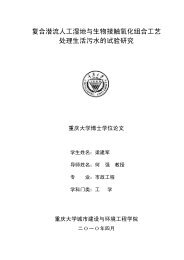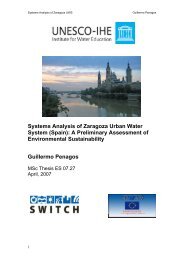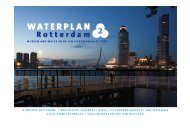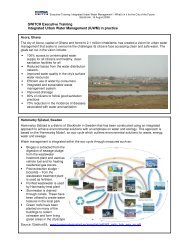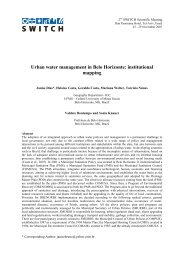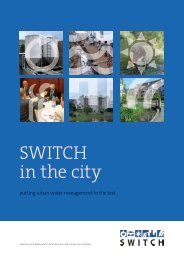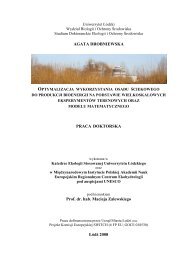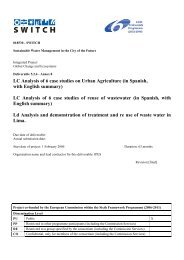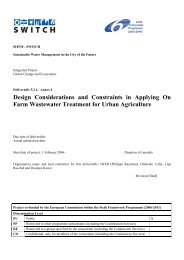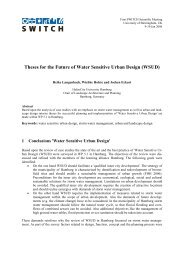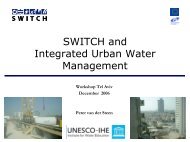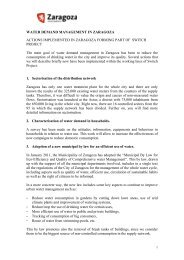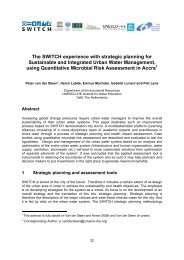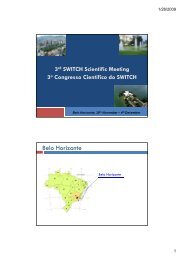Good practices for Social inclusion - Case studies and summary
Good practices for Social inclusion - Case studies and summary
Good practices for Social inclusion - Case studies and summary
You also want an ePaper? Increase the reach of your titles
YUMPU automatically turns print PDFs into web optimized ePapers that Google loves.
Key outcomes of the Harrow ‘Open Budget Process’<br />
<br />
<br />
Enhanced reputation of the Assembly: views on the Council improved locally <strong>and</strong> a more<br />
in<strong>for</strong>med <strong>and</strong> calm public debate on Council budgeting was enabled 65 ; improved quality<br />
of decisions. Concerns that tax cuts would be proposed undermining public services<br />
were unfounded, with some sections of the budget actually proposed as significant<br />
growth areas <strong>and</strong> higher ranking of non-financial council spending criteria (e.g.<br />
effectiveness, environmental impact <strong>and</strong> social impact) than previously.<br />
Balanced representation: the Assembly did reflect the ‘complex demography’ of Harrow,<br />
with representation across different ethnic groups, age groups (the young <strong>and</strong> old were<br />
slightly over-represented which is unusual compared to the 20-44 age group) <strong>and</strong> both<br />
men <strong>and</strong> women attended, although 40 more men compared to the number of women.<br />
The Panel had slightly higher representation from the 20-44 age group to provide some<br />
balance, <strong>and</strong> the gender balance was relatively equal, although still with more male<br />
members than female.<br />
Source: Lent, A. (2006) ‘Harrow Open Budget – Final evaluation’. The Power Inquiry, UK.<br />
Box 10 : Key outcomes of the Harrow „Open Budget Process‟<br />
There were also challenges in this particular process identified by Lent, (2006) <strong>and</strong><br />
highlighted in Box 11 below.<br />
Challenges <strong>and</strong> lessons from the Harrow ‘Open Budget Process’<br />
<br />
<br />
<br />
<br />
<br />
Difficulties experienced in the operation of the Panel: The Panel lacked focus, possibly due to its<br />
large size (34 members), but also insufficient time allowed <strong>for</strong> members to learn about<br />
budgeting; differing interpretations of the Panel’s role <strong>and</strong> insufficient time to accommodate<br />
them all (the organisers seeing it as a feedback mechanism on the final budget, <strong>and</strong> members<br />
focusing on actively promoting Assembly decisions); emphasis of ef<strong>for</strong>ts on the bigger<br />
Assembly, to the detriment of planning/back-up <strong>for</strong> the unexpectedly popular Panel process.<br />
Benefits from educating the public on local authority resource constraints: Limits to Council budget<br />
options explained at marketing stage; clarity in communications that Councillors retain legal<br />
control over budget decisions; ef<strong>for</strong>ts to try <strong>and</strong> avoid over-inflation of unrealistic<br />
expectations.<br />
Mixed effectiveness in influencing budget priorities: The Panel concluded that the final Harrow<br />
Council budget did largely reflect the priorities identified by the Assembly, although it also<br />
identified particular instances where its views had been ignored.<br />
Participants keen to set the agenda next time round: Greater freedom to set the policy options<br />
would be sought in the future. Insufficient time allowed <strong>for</strong> involvement of local people in<br />
developing the discussion guide or deliberate on alternative options within the Assembly<br />
process.<br />
Missed opportunity <strong>for</strong> direct dialogue between those in authority <strong>and</strong> local people: The Steering<br />
Group separated the Councillors from the Assembly in the deliberations to ensure<br />
65 A supportive local media coverage was a key element <strong>and</strong> even the tax campaigning group, the Harrow<br />
Council Tax Campaign, provided endorsement.<br />
98



